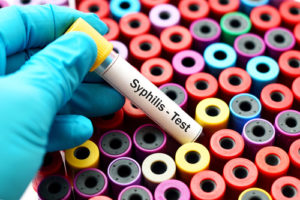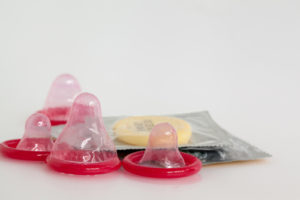Back to Main Page
What is it?
It is a bacterial infection and is caused by the bacteria Treponema Pallidum. It can be passed to sexual partners and also can be passed from mother to baby during the pregnancy & after the baby is born.
How is it passed on?
- Kissing a person who is infected with syphilis
- Having intimate genital contact
- Close contact with an infected sore
- Having vaginal , oral ,or anal sex unprotected
- Unprotected rimming (mouth to anus contact)
- An infected mother can pass it to her new born
Symptoms
Syphilis has 3 stages to the infection; both males and females have the same symptoms.
Stage 1 – lasts 9-90 days, at approximately week 3 of contraction the infection causes a painless ulcer that can appear in the genitals, mouth or anus.
Stage 2 -between 6 weeks to 6 months, a spotty rash with a red colour appears typically in the palms of your hands and soles of feet although the rash can also appear on other parts of your body.
Stage 3 –can be months to years after contraction of the infection, the symptoms are rare but there is potential for long term damage to your brain and lungs.
Sometimes people with Syphilis have no symptoms at all and are diagnosed through blood testing. A positive result from a blood test and no symptoms is called Latent Syphilis.
Diagnosis
You should get tested as soon as possible if you think you have syphilis as it does not normally go away on its own. Getting tested is the only way to find out if you have it.
The test for syphilis usually involves removing a sample of fluid from any sores using a swab (similar to a cotton bud) and a blood test.
If you are concerned about syphilis or any other sexually transmitted infection, you can make an appointment with the Student Health Services for assessment, advice and treatment if required. Make an appointment at the Health Centre reception desk.
Treatment & Prevention
Antibiotics are effective in treating Syphilis. You can take them in a tablet or as an injection form and are only available by prescription. Syphilis can not always be prevented, however you can reduce your risk by ;
;
- Abstaining from sex for at least two weeks after treatment
- Using a male or female condom during vaginal, oral or anal sex
- Using a dental dam (a square of plastic) during oral sex
- Not sharing sex toys ( HSE, 2017).
For more information on genital warts, click on any of the following links;